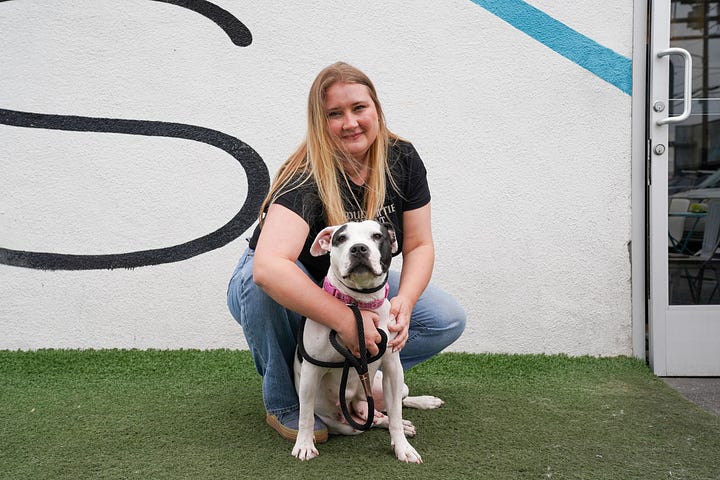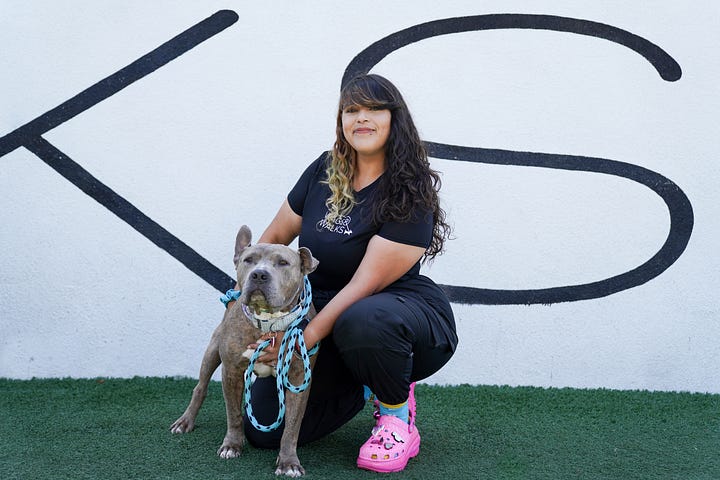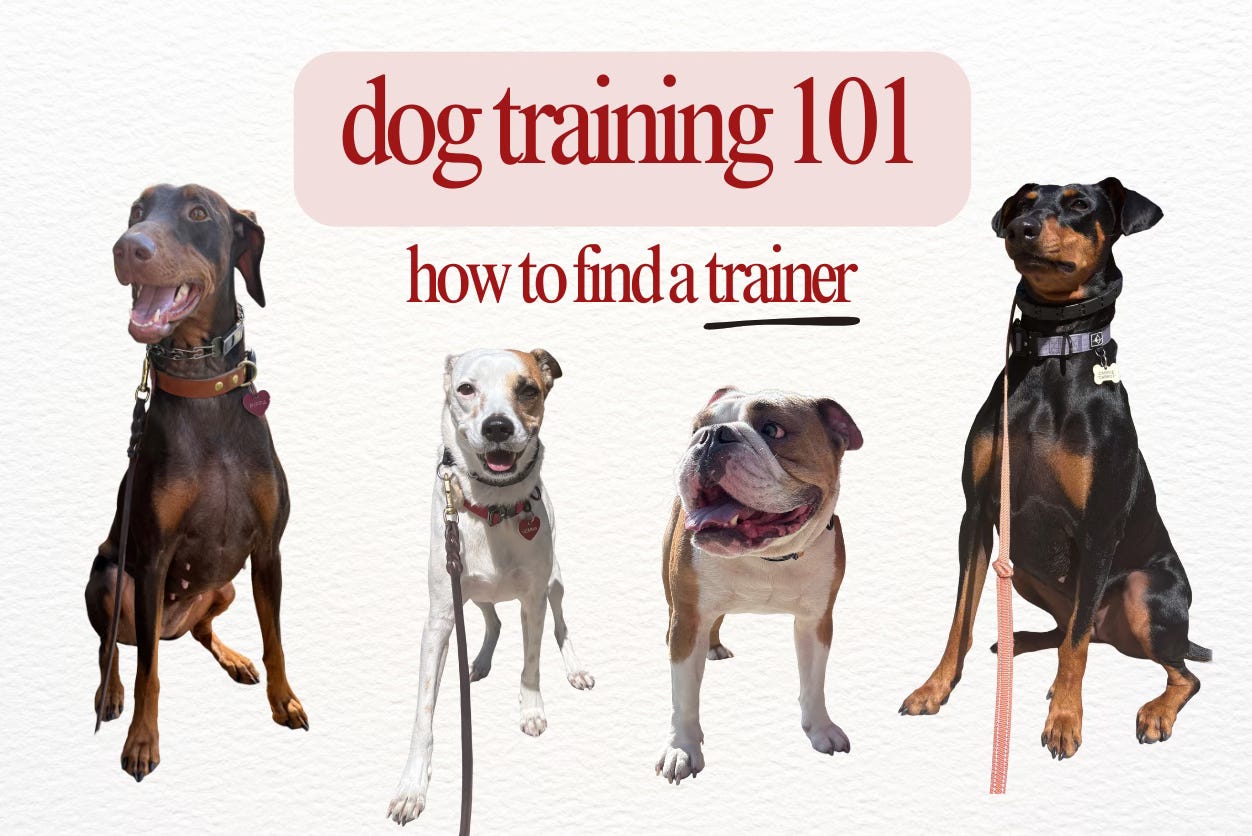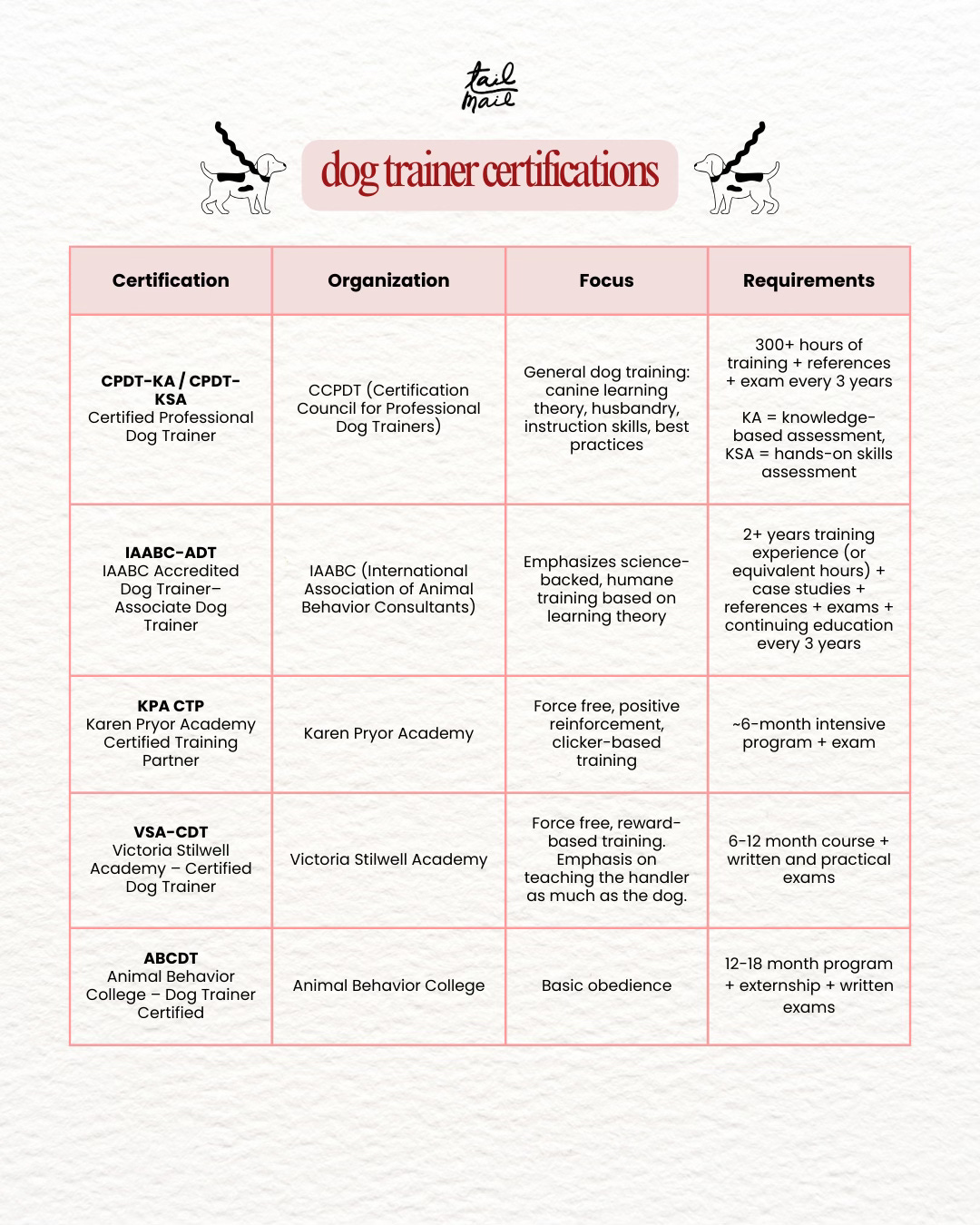How to find a good dog trainer
Get ready to speed date.
Welcome back to Dog Training 101, a Tail Mail series dedicated to helping you set your dog up for success. You can read the first installment here, which goes over training basics: how it works, common lingo, and popular training styles.
This issue is all about finding the right dog trainer: how to start your search, key questions to ask, major red and green flags, and what you need to know about training certifications.
Stay tuned for part three, which will cover common training tools.
Have something about dog training you want answered? Leave a comment or drop me a note at clara@readtailmail.com. I’d love to hear your feedback.
Finding a good dog trainer is a lot like dating.
You might need to talk to and meet several trainers before you find the right fit, and that’s okay! Every conversation and interaction helps refine what you like—and don’t like—in a trainer.
Start your search with a set of clear goals or specific challenges you want help with. Did you adopt a puppy and need support with potty training, crate training, leash manners, and basic obedience? If you have a spicy dog,1 what situations trigger their reactions? What kind of training have you already done with your dog?
Having these examples on hand will help when you start compiling a list of trainers to contact.
Leverage your network
There are many people who call themselves dog trainers, so a Google search of “dog trainers near me” will be an overwhelming place to start. Instead, start your search by leveraging your network.
If you adopted from a reputable rescue or responsible breeder, they should have a network of trusted trainers to recommend, Delaney Rogers, Wags & Walks’ placement and training partnerships lead, tells me. Dog parent friends (or friends of friends) who have worked with trainers can also be a great resource.
Next, Rogers recommends taking a look at each trainer’s social media presence to see their work in action: What are their training philosophies? Do they have videos showing how they work with dogs? Do you vibe with the way they interact with the dogs in their care?
“You want to make sure that the way the trainer is training aligns with how you, ultimately, as a pet parent, want to be training the dog in your home,” Rogers says. “If the trainer is using methods that you know you won’t be able to upkeep, it just doesn’t make the most sense to go with [them].”


From there, you can narrow your list to the trainers you’re most excited about. Reach out for a consultation and come prepared to discuss your needs and goals.
Observe and ask questions
Consultations may take place over the phone or in person, depending on a trainer’s preferences. Trainers usually charge for in-person consultations, which run about an hour and allow the trainer to directly assess your dog’s needs, demonstrate some of their techniques, and answer your questions. This is an opportunity for both you and the trainer to get a feel for your working relationship and determine whether it’s a good fit.
Regardless if you have a virtual or in-person consultation, some questions to ask include:
What tools and methods would you use with my dog?
What program style (one-on-one sessions, board and train, group classes) is best for my dog? What’s the total cost? Do those costs include tools and resources I can take home afterward?
What will long-term management look like? A dog may thrive in the training environment but regress once they go home if a trainer isn’t thinking about a long-term management plan for you and your dog that’s realistic to your lifestyle.
What kind of support do you provide outside of sessions? A good trainer will be available via text/email to answer questions that come up outside of paid sessions. (Just be respectful of their time, too!)
Do you have training certifications? Training isn’t regulated in the U.S., so anyone can call themselves a trainer, behaviorist, dog expert, etc. A good trainer should be proud to discuss their experience and educational background, which may include widely recognized certification programs that require hours of hands-on experience and written exams. Not all certifications are made equally, so I wouldn’t make a decision solely based on whether a trainer has or doesn’t have one of the common certifications included in the cheat sheet below. (If you’re in need of a dog behaviorist, however, credentials are absolutely important. More on that later.)
Why did you become a dog trainer? I like this question because it can help you sus out if they’re working with dogs for the right reason.
As you meet or talk with potential trainers, watch for these signs:





